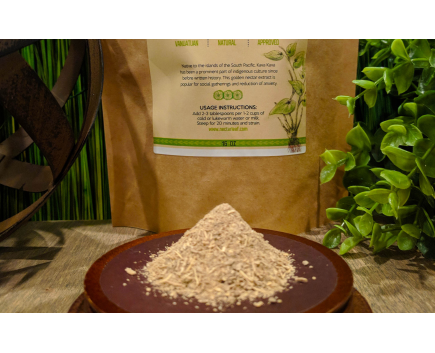
Do You Know What Kava Is Used For
Kava or Kava-Kava is the most common name for Piper Methysticum, a plant native to the south pacific islands. Its roots have been processed and mixed with water or coconut milk by the natives of numerous islands of the region for millennia to produce an ancient drink.
This beverage has been present in cultural and religious events throughout history and it has only caught major international attention during the last few decades, when it started being used by non-natives as an herbal supplement for different health-related purposes.
In its native regions, Kava was often used for its sedating effects. Worldwide, it has been imported to other regions as an herbal supplement or as an alternative to remedy the symptoms of anxiety, stress, pain, and sleeping disorders.
Kava is generally believed to have sedative, relaxing and euphoric effects but, officially, only its use for treating generalized anxiety disorder has been scientifically proven through a clinical trial performed by the University of Melbourne.
“The study, led by the University of Melbourne and published in the Journal of Clinical Psychopharmacology, revealed Kava could be an alternative treatment to pharmaceutical products for the hundreds of thousands of Australians who suffer from Generalised Anxiety Disorders (GAD)”
One of the main concerns of Kava has regarded its alleged, potential liver damage. However, all studies and trials conducted so far have proved that, if taken under an 8-week period, there is no significant damage to the liver or any other part of the body. Long-term effects of Kava have yet to be studied and any assumption would therefore be scientifically unfounded.
Many people around the world currently use Kava for sleeping disorders or as a generic herbal supplement to help with better sleep. A 2015 study was unable to prove its effectiveness for this purpose, but the same study was also equally unable to prove that traditional remedies such as chamomile and valerian helped with sleep either.
To this day, Kava remains legal in most countries. Some have more strict regulations, such as the UK, where selling or importing it is a criminal offense but consuming it is not. In most European countries, it can be sold and consumed as an herbal supplement except for Poland, one of the few countries that banned it completely. In the United States, there is no specific regulation regarding its consumption or sale. According to the FDA, kava does not fall under the category of foods or drugs and is rather considered a dietary supplement, meaning manufacturers do not have to seek FDA approval before selling it. Australia, on the other hand, regulated the amount that can be brought into the country and established a recommended “safe” daily dose.














Comments
Leave your comment